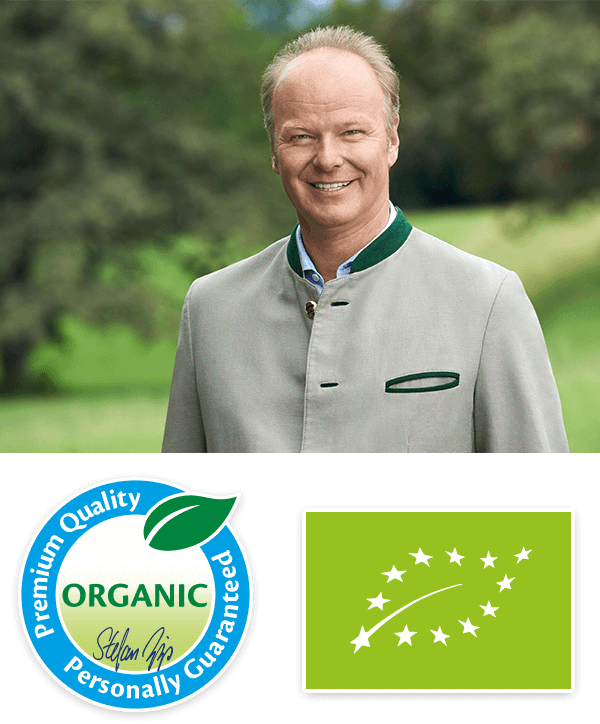
History
As a pioneer of organic farming, Claus Hipp had to do a great deal to raise awareness. Today, HiPP is the largest processor of organic-biological raw materials worldwide. Here you can learn more about our history...

As a pioneer of organic farming, Claus Hipp had to do a great deal to raise awareness. Today, HiPP is the largest processor of organic-biological raw materials worldwide. Here you can learn more about our history...

That is the reason why our organic products are of extraordinary quality and produced without genetically modified raw materials according to the European Union’s regulation for organic production.

HiPP organic quality